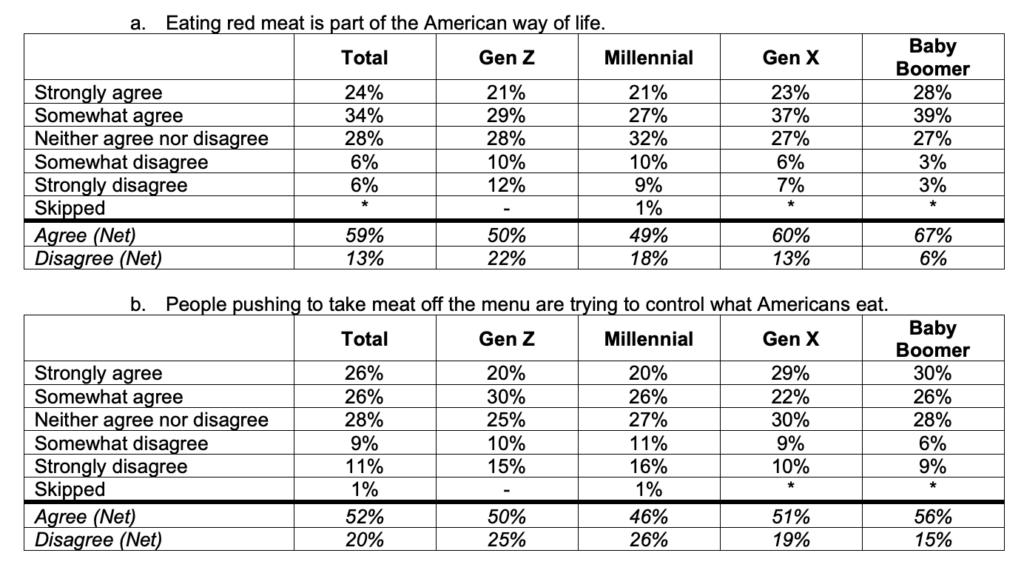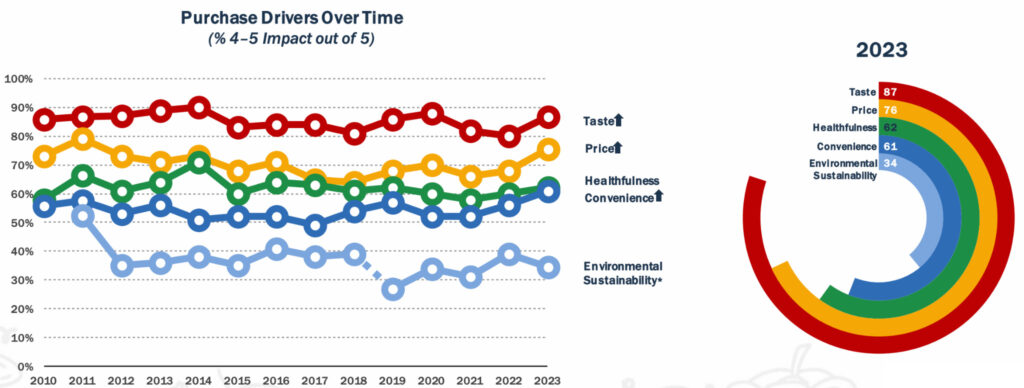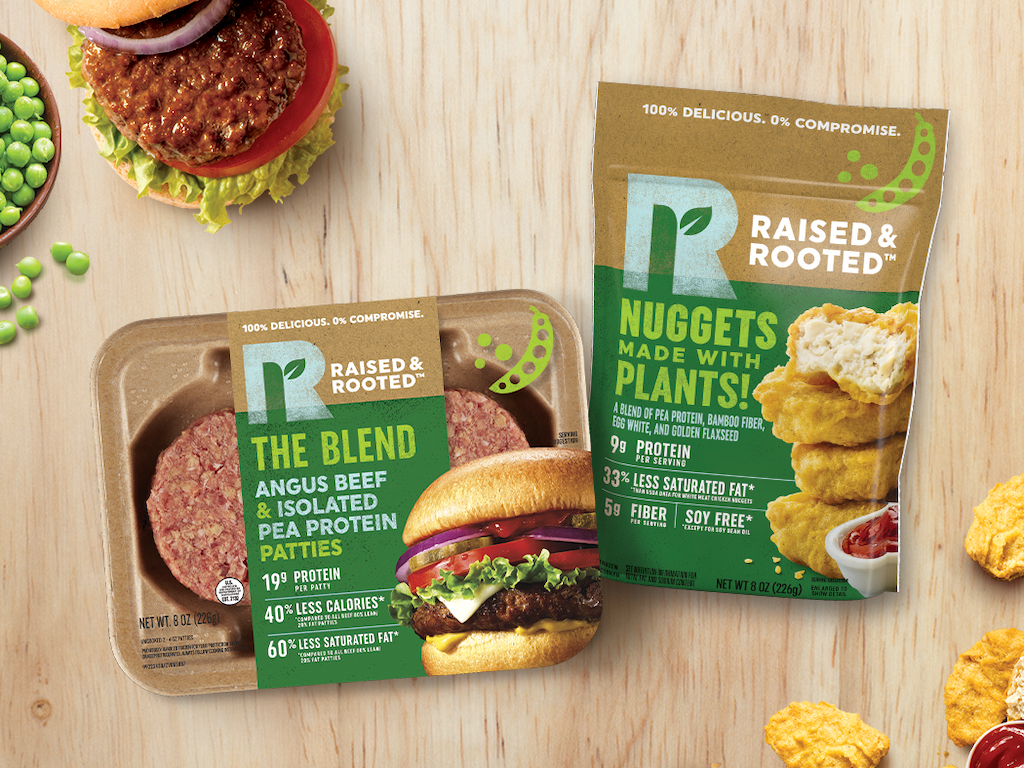Cell Ag Expert Parendi Birdie on Her New Blended Meat Startup Asentia: ‘We’re Throwing Out the Black & White Thinking’
8 Mins Read
After years of working with cellular agriculture companies, Parendi Birdie is now working on her own blended meat startup, Asentia. She tells Green Queen about launch plans, consumer testing, and the best way to market these products.
This article is part of our content series exploring the world of hybrid and blended meat products – those blending cultivated or conventional proteins with plant-based ingredients, respectively, and why some think this is the future of reducing meat consumption.
Eating meat is fuelled by our unconscious desire for satisfaction, not cognition. Familiarity, place and origin are key concepts in food psychology, and the primal instinct in us still dictates why we eat what we eat.
This is what Parendi Birdie, a cellular agriculture expert now working on blended meat with her new startup Asentia (currently in stealth mode), tells me. It’s also what a survey by the International Food Information Council (IFIC) earlier this year tells us, revealing how three-quarters of its 1,022 American respondents feel food consumption impacts their physical and mental well-being.
It rings true when applied to meat-eating too. In 2021, Ipsos conducted a 1,018-person poll that revealed how 89% of Americans include meat in their diets. It noted an interesting observation: 59% of respondents believed eating meat is the American way of life, and 52% felt that people advocating for reduced consumption are trying to control what the public eats.

The psychological explanation above extends to plant-based meat, and its barriers to adoption, as Birdie explains: “Evolutionary wiring makes it easy to envision how a cow becomes a burger, but it’s challenging to envision how peas transform into a burger. This confusion then creates room for doubt and allows the narrative of unnatural/processed/fake meat to gain traction.”
But there is a solution to this – one that could cut people’s meat intake, and simultaneously help them overcome their neophobia around plant-based alternatives. “Blends can sidestep this discussion by focusing on meat that’s enhanced with plants,” explains Birdie. “This approach allows blends to confidently occupy the realm of ‘real’ in the consumer’s minds, without questioning its authenticity.”
The idea is to throw out the black-and-white thinking, “the rules and labels”, to craft an ideal meat product. “We’re combining the meat we know and crave with the plant-powered benefits we want more of to create inspired, enhanced protein with more flavour, juiciness and nutrients,” Birdie says of her new startup.
The challenges facing blended meat
In an interview with food tech firm Alt Collective – where she works as a scientific advisor – Birdie explained how she came across cultured meat in 2013, which was the springboard of her career in cellular agriculture and alt-protein. She has a biochemistry degree and has been an early team member at cultivated meat startups GOOD Meat and Mission Barns (she also interned at precision fermentation company The EVERY Co).
In January, she left her position as head of brand strategy at Mission Barns and began working in strategic and advisory roles with various companies. The other thing she’s been working on is blended meat, which she says is “the silver bullet” to solve the biggest problems in alternative protein.
Some companies – like SciFi Foods – are combining cultured proteins with plant-based to create hybrid meat. Birdie’s startup will start with a blend of conventional and plant proteins. “Rather than trying to make plants taste like meat, we use them to enhance meat, offering something genuinely better,” she says. “The companies that will succeed here will have a consumer-obsessed, taste-first approach, connecting on a deeper emotional, gut level.”

And there are legs to this approach, as numerous studies have shown. That IFIC report revealed that taste continues to be the top purchase driver for food and beverage in the US. Recently, a Mintel survey showed that flavour (48%) ranks as the biggest factor stopping Americans from trying plant-based meat.
But there are doubts about the blended meat segment. Companies from Tyson Foods to Aldi have all tried to do this and failed. Perhaps there were a few marketing faux pas here. Tyson, with all its money and might, went with ‘Angus Beef & Isolated Pea Protein’ as the front-of-pack message on its Raised & Rooted blended burger – hardly an inspiring (or mouthwatering) slogan.

According to the IFIC poll, while 14% of Americans consumed more blended meats in the last year, that growth rate decreased from the year before. Moreover, a higher number of consumers (20%) are eating fewer of these products. Industry think-tank the Good Food Institute (GFI) says that – amidst mainstream recognition of plant-based meat and numerous headlines about the headways made by cultivated meat startups – blended meat might need some help with its value proposition vis-a-vis consumers. It adds that the sector needs to reach a broader meat-eating base.
So, with these numbers in mind, why would people want to eat a burger made from an animal-plant blend? “135 million Americans don’t try a product by accident,” says Birdie, referencing a Gallup poll from 2020 that revealed how 41% of Americans have tried meat alternatives. “There is something deep and real that drew millions of people to try plant-based meat. We all want to eat better, but don’t want to sacrifice taste.”
Market testing and launch plans
“There is a huge, untapped market of people actively seeking plant-forward options, but today, they only have two choices: meat and plant-based meat,” explains Birdie. “This binary leaves a big set of the population frustrated by underperforming plant-based meat products designed for vegans.”
This is something plant-based meat company Impossible Foods has touched upon. Speaking to Green Queen last week, a spokesperson for the brand said: “Taste is the #1 reason why consumers will decide to purchase a product again or not. Many consumers have unfortunately had a less-than-positive first impression of various plant-based products, and that casts doubt on the rest of the category as a whole.”
Asentia is “exploring what makes the finest cuts of meat so extraordinary” and applying “cutting-edge culinary techniques” to create products that deliver the flavour experience found in only “the most exquisite cuts”. The team’s R&D testing has led to the development of new approaches to thermal treatment, flavour development and mixed-protein binding – “all to allow our consumers to enjoy a clean label, while not sacrificing the sensory experience”.
This is reflected in the initial product lineup: truffle-mushroom meatballs, bourbon-bacon-artichoke sausages, and black Angus-roast shallot and shiitake burgers. While there’s no launch date yet, the plan is to enter retail first, before moving to foodservice with blended meats that “aim to outperform plant-based and conventional meat on all fronts”.
And Birdie says she can back this up with data. In setting up her company, she has done extensive research, including surveys and focus groups, plus a Meta in-market ad testing with over 200,000 participants. According to Birdie, who extrapolates the testing results based on the overall US population, 163 million Americans are “excited” for products that combine plant and animal protein, while 64 million flexitarians agreed that “Instead of eating plant-based meat occasionally, I’d prefer to regularly eat a meat product that combines real meat and plants.” No doubt these are encouraging stats.
“These products offer an enhanced sensory experience with the plant-powered benefits we want more of,” suggests Birdie. “This, coupled with the cultural and psychological familiarity of meat, is the winning combination for widespread, daily adoption. We’re pioneering a new category to meet this massive unmet demand.”
That adoption point is something Mirte Gosker, managing director of GFI APAC, is bullish about. “If blends are embraced by conventional meat industry players, it could dramatically increase plant-based meat manufacturing globally, which – through economies of scale – could drive down production costs for all plant-based ingredients, including those used for fully plant-based products,” she told Green Queen.
In it for the long term
The blended meat category is still embryonic, but several companies – including 50/50 Foods and Mush Foods – are making progress in this space. There is, of course, the climate argument to contend with: beef is the worst greenhouse-gas-emitting food on the planet. But meat reduction is a much more pragmatic and deliverable approach than outright elimination.
Plus, research has found that replacing just half of our meat and dairy consumption with plant-based alternatives – essentially what blended meat is doing – can cut 31% of our agricultural and land use emissions, halt deforestation, halve the decline of ecosystems, and double overall climate benefits.
Gosker cited a report by the Guardian last year, which forecast the predicted impact of blended meat on our food system. “If Burger King and McDonald’s – which together represent between 2-3% of global beef purchases – changed their beef patties into 50/50 blends with plant-based meat, demand for global agricultural land would reduce by 8.5 million hectares – an area the size of Ireland,” she summarised.

“The stakes are so high for this cause, yet the standards are far too low,” says Birdie. “Our vision radically differs from others and we aim to be a leading force driving change, not merely to be along for the ride. When I look at where we want to be in, let’s say 100 years from now – a world in which we truly have a sustainable protein industry – it’s hard for me to envision a realistic path without blends playing a critical role.”
Biride adds that she isn’t too excited about blended meat’s short-term benefits. “I believe the true power of blends lies in their unique ability to create an environment where the entire sustainable, alt-protein protein sector can thrive.”
This article was updated to include the name of Parendi Birdie’s startup, which was under wraps at the time of publication.




